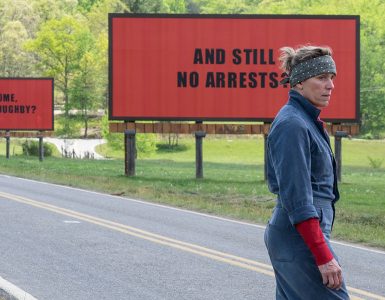Kendrick Lamar’s Damn. has many critical accolades, none more emphatic than its aggregate rating being higher than that of any other album in 2017, but I still feel like it needs a defence. Pitchfork’s readers rated it the most overrated album of the year, and the Guardian’s prestigious end of year list had it miss out on the top spot, to – bizarrely – St Vincent’s MASSEDUCTION. FACT magazine and The Needle Drop didn’t even rank it among the 40 best albums released in 2017. But look – Damn. is a compelling and furious work of genius. Topically, it matches all great albums about the African-American experience; structurally, its themes and narratives weave and twist like any great modern novel. Of course, the same could be said for good kid m.A.A.d city or To Pimp A Butterfly, and maybe Damn. looks worse in their shadow for being more obtuse and less instant, but it’s worth giving it the close attention it demands.
Rather than isolating different elements of the African-American experience and packaging them clearly and digestibly as Lamar did on, say, ‘King Kunta’ or ‘The Blacker the Berry’, you experience them on Damn. as Lamar experienced them in life: chaotically and unpredictably. His narratives are fractured, fragments littering the album like bullet holes in the body of a car. His raps are a blur, switching from life in Compton, to police brutality, to personal struggle, to gang warfare, to poverty, to religious confession, to bragging, to family life, to ignorance, to theology, to his fears, to structural racism. The complexity is intoxicating, and the speed at which he raps deep, important lyrics is both impressively skilful and serves to bury his points deep within these tracks, confounding detached listening.
On Damn., Lamar simultaneously reprises the themes that fuelled his two previous albums: the conflict between a ‘Good Kid’ and the ‘Mad City’ of Compton, and the inter-generational conflict between Whites and African-Americans that served as the conceptual grounding for To Pimp a Butterfly. These conflicts are not new to rap, but what makes Lamar’s treatment of them unique is that he not only documents the nature of the struggle, but seriously considers the idea that he is damned to be on the losing side of each. It doesn’t matter if you agree with him – what is striking is the force of Lamar’s convictions, and the dizzying, furious and complex art they have propelled him towards creating.
A lot of this album is about Kendrick’s fear of succumbing to the gangsta lifestyle synonymous with Compton, at the expense of religion. “Might take a life for this shit/Put the Bible down and go eye for an eye for this shit” (‘ELEMENT.’), “I know He walks the earth…but temptation is first on my list, I can’t resist” (‘YAH.’), “In a perfect world I’ll choose faith over riches” (PRIDE.) – Lamar confesses again and again, that deep down his loyalties might lie with sin rather than virtue. The most arresting confession is on ‘XXX.’– a bereaved father asks Kendrick “I know that you anointed, tell me how to overcome”, but Lamar’s response is not to seek forgiveness, but retribution: “if somebody kill my son that means somebody getting’ killed”. He then exposes the contradiction he is living by cutting the track abruptly to audio of him giving a talk against gang violence: “Alright kids, we gon’ talk about gun control”. Lamar feels himself spiralling, and knows the consequences: “Tell me when destruction gon’ be my fate” he asks on ‘DNA.’, and on ‘DUCKWORTH.’ he bluntly asserts he would have “died in a gun fight” had he grown up fatherless. He knows how narrowly he escaped the carnage of a gangsta lifestyle, and is terrified of being sucked into that alternate reality – in an album rich in self-reference, his most repeated refrain is “Ain’t nobody prayin’ for me”. And the gang mentality is infecting all facets of his life: on ‘LOYALTY.’ and ‘LOVE.’ he needs reassurance that those around him aren’t going to be “switching sides”, that their loyalty is personal, and not due to the material incentives he can offer, though this is most derivative and least effective themes.
This paranoid premonition of destruction equally applies to another prominent narrative of conflict: the African-American struggle. On the one hand, he lays blame at the foot of the government, decrying the structural factors that keep African-Americans impoverished and on the wrong side of law enforcement. The cryptic opening monologue on ‘BLOOD.’, is possibly a tragi-comic critique of how African-Americans actually help the cause of justice, which is supposed to be blind, by pointing out its indulgences of racial prejudice, yet are more likely to be turned on and shot dead than listened to. On the other hand, there is Carl Duckworth’s monologue, which asserts that African-Americans are “a cursed people”, derogated by God for turning away from his teachings, a view Lamar endorses on ‘YAH.’. This idea contextualises what Kendrick is referring to on the album’s opening question: “Is it wickedness? Is it weakness? You decide”. How can the same man who rapped “If God got us then we gon’ be alright” now believe that God is punishing Black Americans? It’s a striking volte-face, and a stunningly painful topic, remarkable for the sheer force of its sentiment. I don’t think Lamar wants us necessarily to believe this idea, perhaps he doesn’t either, but the fact that it has any appeal to him powerfully demonstrates the depths of despair at the contemporary state of America, in a way that no album has before, not even To Pimp A Butterfly.
These twin struggles are united by the common theme of an abandonment of God, and an impending sense of doom. They weave and intersect, the distinctions between them becoming ever more blurred, until there is just one tangled mess of American carnage. When he asks “Why God, why God, do I gotta suffer?”, is he speaking of his own suffering, or on behalf of African-Americans? The distinction ceases to matter. There are even hints of a personal rebellion against God fomenting in Lamar: there is the curse of the title of course, and the casual blasphemy of equating “laughing to the bank” with “what God feels like” on ‘GOD.’, as well as that title occupying a less prestigious spot on the track-list than the one named after Kendrick’s family – ‘DUCKWORTH.’ It’s probably not intentional that ‘GOD.’ Is the weakest track, but who knows? (Incidentally, the weakness of ‘GOD.’ is why I think the reversed-tracklist version of the Deluxe edition of Damn. is less effective – ‘DUCKWORTH.’ matches ‘DNA.’ as an opener, but the momentum of ‘YAH.’ makes it the much better follow-up.) The cryptic and frequent statement that “What happens on Earth stays on Earth” might even be scepticism of the afterlife, and those assertions of his taste for sin can read just as much as brags as confessions. To turn on God is of course the ultimate embrace of sin over virtue – precisely what Kendrick sees as his fate.
The subjects are weighty, but the tracks are jams: most embrace a nebulous kind of neo-soul, with reversed-audio and peculiar samples adding intrigue. ‘DUCKWORTH.’ chops up soul samples in a way that Old Kanye would have been jealous of, and is an outstandingly well-delivered parable of Compton life. He seems to parody the nihilism of trap on ‘HUMBLE.’, taking its drums and bass but pairing them with comedy-horror strings synths and a school assembly piano. And there’s something so numinous about Lamar’s voice – each syllable seems precision-cut, to the microsecond, to the microtone, to the decibel, plus he’s capable of varying all of these to give precisely the right effect.
“How you let a conscious rapper go commercial only doing conscious albums?” Lamar asked on his remix of Future’s ‘Mask Off’ and Damn. is the proof that he is the supreme conscious rapper of his generation, and indeed the greatest of any persuasion right now. It’s remarkable really that Lamar has bent his audience round to his philosophical, literate approach to lyrics – but his thoughts resonate, and his obvious conviction is infectious. He outstrips everyone else not by doing the same things better, but by eschewing their methods and going completely off into the deep end of his own thoughts. Lamar deconstructs everything he is – everything that is in his DNA – and exposes it, however hideous, to the judgement of God and to his audience, but what he ultimately reveals are the horrors of racism. Damn. is the sound of all the thoughts spilling out of his head at once – profound, complex, astounding, and the best of 2017.













Add comment